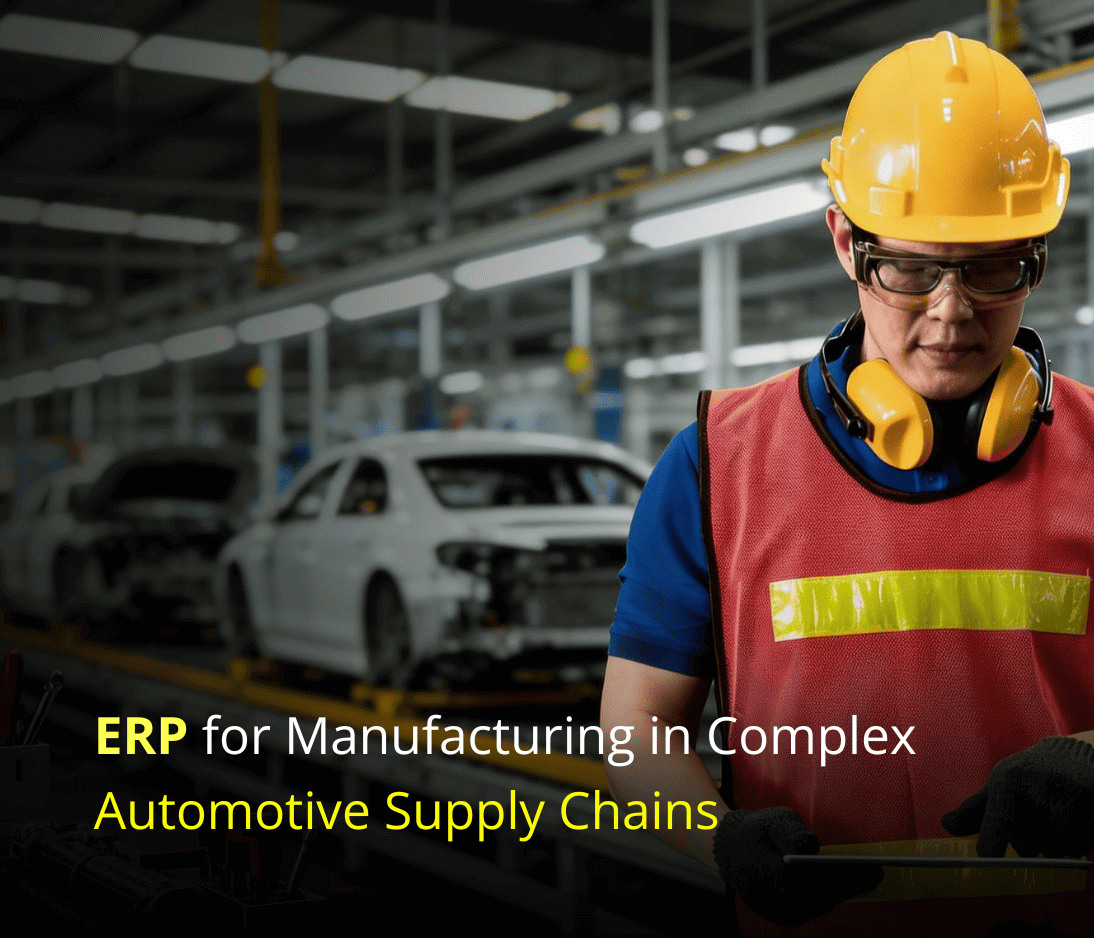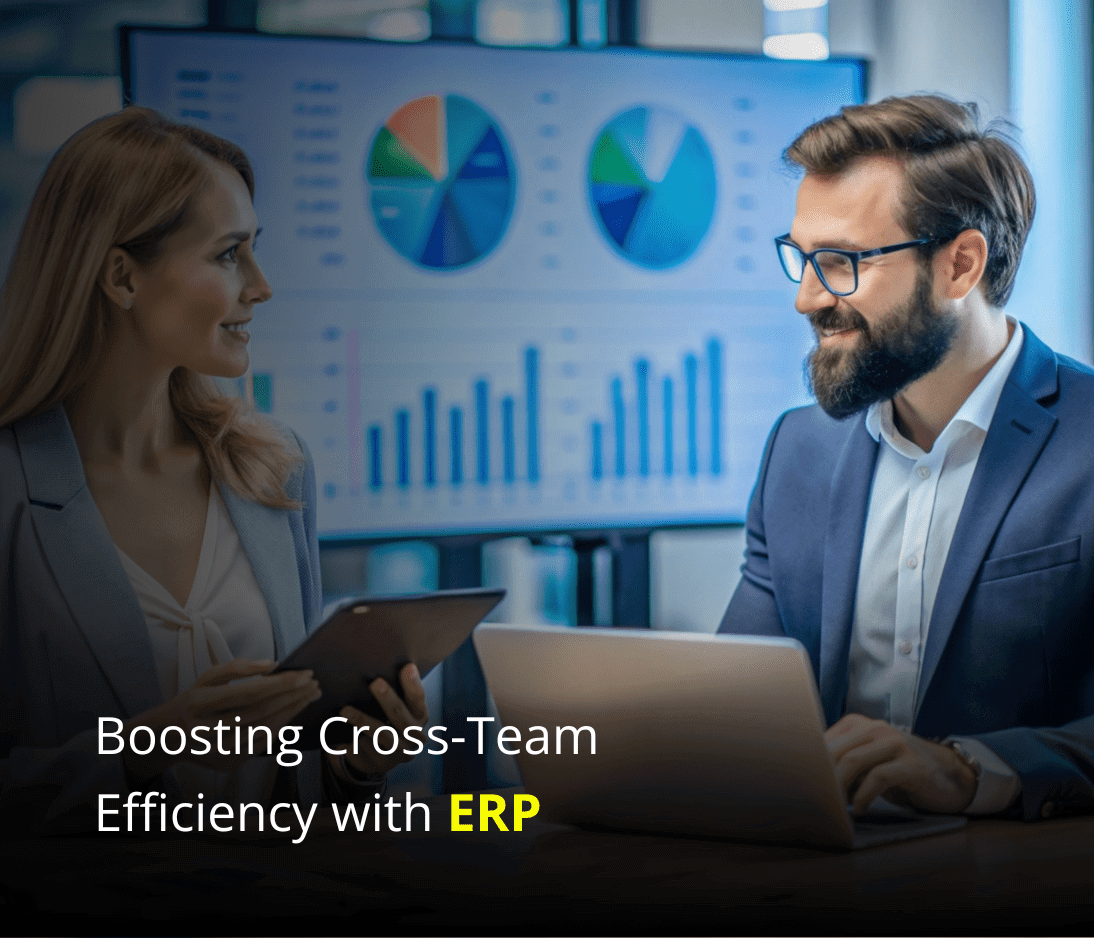What is ERP?
An ERP (Enterprise Resource Planning) software is a modular system that consolidates organizational data you require to manage day-to-day business activities with ease. A complete ERP suite ties together all departments into one system to support you with coordination of resources, information and processes within the company.
Also, ERP software is a one-size-fits-all system that helps plan, predict and manage all operations, irrespective of the nature of business.
What is MRP?
MRP (Material Requirements Planning) software on the other hand, is an industry-ready system specifically designed to support operations in manufacturing companies. It helps manufacturers calculate more precisely what raw materials they require, at what time, and in what quantities.
Further, the MRP system enables you to compare forecasts with actual data, analyze performance and improve processes to achieve better efficiency in capacity planning, scheduling, shop floor control and managing all other operations.
Deployment time
As cloud ERP is deployed by your service provider and hosted in their server, this method does not require any additional resource or hardware and so the implementation process is completed within a few days or weeks.
On the contrary, on-premise deployment is a long-drawn method. Since the ERP system is installed locally on your company’s server, it takes additional time to set-up the required infrastructure and prepares your internal IT team to handle the installation process, which extends the deployment period.
Difference Between ERP and MRP: Major Benefits
The importance of both ERP and MRP software revolves around what they are capable of doing for your business. Both have their own advantages. The prime motto behind choosing one should be how well it complements your business performance.
Benefits of ERP
Improve strategic planning
ERP software allows you to identify the areas that need necessary improvements. Once the issues are detected, it becomes easier to implement changes and monitor their effectiveness. This reduces overall business risks and since all the processes are streamlined, it lowers the operational costs and improves time management, which eventually leads to saving money and making maximum ROI.
Enhance operational efficiency
The introduction of globalization encouraged worldwide selling of products, regardless of where it is being manufactured. The need for integrated operations is intrinsic to attain a strong hold on the network.
ERP software eliminates the worry of managing this complex network. The system uses a centralized database that supports all core processes of the business. It allows everyone in the production chain to communicate and share information as necessary across a common digital platform, which further helps with informed decision-making.
Benefits of MRP
Optimize inventory management
Inventory management is crucial for manufacturers to effectively plan and schedule material procurement for mitigating shortages or being overloaded with unused stocks.
MRP software is included with manufacturing-related features that allow you to monitor and impose control on inventory, stock lot and serial number tracking, stock movements, shipments and much more.
Optimized inventory lets you know the exact raw material requirement for any particular production, quantity needed and when it needs to be repurchased.
Accurate material planning and purchasing
Accurate material requirement planning requires a smart WMS solution to track the production steps and identify procurement needs in favor of the production schedules and expected product deliveries. The system’s ability to analyze what’s needed and when in advance enables you to effectively manage raw material vendors and their purchase terms while quickly fulfilling the customer orders received.

Comparison of ERP and MRP: Key Differences
Both ERP and MRP solutions are largely used by manufacturers to manage their business operations. However, there are significant differences between them.
ERP systems integrate every piece of the operations that makes up a manufacturing business. The system controls all the processes, from the supply of raw material to the logistics of delivery. Data is effectively managed and shared for making informed business decisions. Material requirement planning is a crucial module of the ERP system, but it is not the sole focus of the solution.
MRP, on the contrary, is specially designed for manufacturers. The solution includes the tools that are relevant to the industry and helps users to gain efficiency in the manufacturing and purchasing areas of the business. The system enables manufacturers to meet customer demands whilst meeting KPIs and purchasing economically.
MRP vs ERP: Which One is Right for You?
Choosing between ERP and MRP systems can be an overwhelming decision, especially if you are implementing major software for the first time.
We understand your dilemma at this point, but nothing to worry about, we can help you choose the right system. Click here to get in touch with our product experts to get complete guidance.








